
Cologne is the largest city of the German state of North Rhine-Westphalia and the fourth-most populous city of Germany with nearly 1.1 million inhabitants in the city proper and over 3.1 million people in the Cologne Bonn urban region. Cologne is also part of the Rhine-Ruhr metropolitan region, the second biggest metropolitan region by GDP in the European Union. Centered on the left (west) bank of the Rhine, Cologne is about 35 km (22 mi) southeast of the North Rhine-Westphalia state capital Düsseldorf and 25 km (16 mi) northwest of Bonn, the former capital of West Germany.
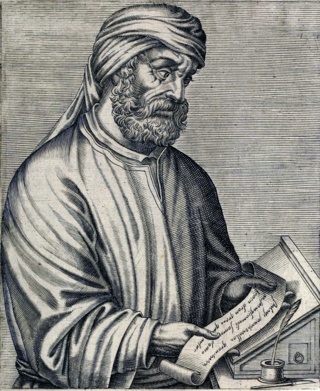
Tertullian was a prolific early Christian author from Carthage in the Roman province of Africa. He was the first Christian author to produce an extensive corpus of Latin Christian literature. He was an early Christian apologist and a polemicist against heresy, including contemporary Christian Gnosticism. Tertullian has been called "the father of Latin Christianity", as well as "the founder of Western theology".
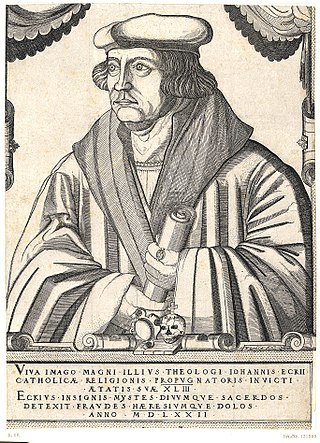
Johann Maier von Eck, often anglicized as John Eck, was a German Catholic theologian, scholastic, prelate, and a pioneer of the counter-reformation who was among Martin Luther's most important interlocutors and theological opponents.

The History of Cologne covers over 2000 years of urban history. In the year 50, Cologne was elevated to a city under Roman law and named "Colonia Claudia Ara Agrippinensium"; since the Frankish rule it is known as Cologne. The city became an influential merchant stronghold in the early Middle Ages due to its location on the Rhine, which allowed the most seasoned Cologne wholesalers to control the flow of goods from northern Italy to England. The archbishops promoted the perception of "Holy Cologne" when they developed the city to the capital of their Electorate of Cologne; to this end, they had both the semicircular city wall and the Gothic cologne cathedral built as a demonstration of power. In the 15th century, Cologne was able to shake off archiepiscopal rule and, as a Free Imperial City, enabled the burgher ruling class to achieve great splendor, visibly documented by the Cologne School of Painting. After the Thirty Years' War, however, the city's development stalled. Only after French occupation when in 1815, Cologne was incorporated into Prussia, the city experienced a steady upswing borne by industrialization. In 1880, the cathedral was completed as a national monument of German imperial unity providing the city with its well-known landmark. Extensive devastation in the Second World War was followed by decades of reconstruction, which only slowly restored Cologne to its emblematic urban panorama on the Rhine through the efforts of urban repair. Today with more than one million inhabitants, Cologne is the fourth largest city in Germany. It is primarily marketed as an event city, with Cologne Carnival being perceived as the biggest tourist attraction.

Johann Cochlaeus (Cochläus) was a German humanist, music theorist, and controversialist.
The Alogi (ἄλογοι), also called Alogoi or Alogians, were a group of heterodox Christians in Asia Minor that flourished c. 200 CE, and taught that the Gospel of John and the Apocalypse of John were not the work of the Apostle, but his adversary Cerinthus. What we know of them is derived from their doctrinal opponents, whose literature is extant, particularly Epiphanius of Salamis. It was Epiphanius who coined the name "Alogi" as a word play suggesting that they were both illogical and they were against the Christian doctrine of the Logos. While Epiphanius does not specifically indicate the name of its founder, Dionysius Bar-Salibi, citing a lost work of Hippolytus, writes in his commentary on the Apocalypse,
Hippolytus of Rome says: A man appeared, named Caius, saying that the Gospel is not by John, nor the Apocalypse but that it is by Cerinthus the heretic.

Johann Faber was a Catholic theologian known for his writings opposing the Protestant Reformation and the growing Anabaptist movement.
Dominic Gravina was an Italian Dominican theologian.

Matthias Joseph Scheeben was a German Catholic theological writer and mystic. "The generations that followed Scheeben regarded him as one of the greatest minds of modern Catholic theology."
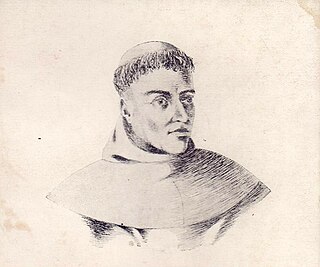
Alfonso de Castro, O.F.M., known also as Alphonsus à Castro, was a Franciscan theologian and jurist. He belongs to the group of theologian-jurists known as the School of Salamanca, though he denied belonging to a specific school of thought and condemned many theologians who did. He was most well-known in the sixteenth century for his work Adversus omnes haereses, libri XIV, an encyclopedic treatise on ancient and modern heresies.
Nicolaus Ferber was a German Franciscan and controversialist.

Peter Nigri, known also as Peter George Niger, was a Dominican theologian, preacher and controversialist.
Bartolomeo Spina was an Italian Dominican theologian and scholastic philosopher.

Albert Pighius (Pigghe) was a Dutch Roman Catholic theologian, mathematician, and astronomer.

Andreas de Vega was a Spanish theologian and Franciscan Observantine.
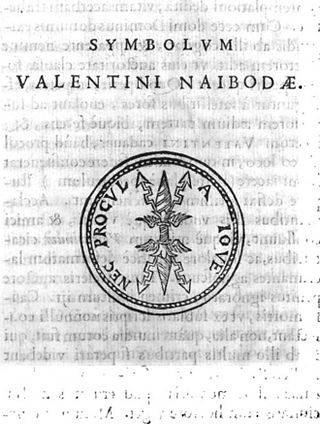
Valentin Naboth, known by the latinized name Valentinus Nabodus, was a German mathematician, astronomer and astrologer.

Disputationes, also referred to as De Controversiis or the Controversiae, is a work on dogmatics in three volumes by Robert Bellarmine.
Ecclesiastical history of the Catholic Church refers to the history of the Catholic Church as an institution, written from a particular perspective. There is a traditional approach to such historiography. The generally identified starting point is Eusebius of Caesarea, and his work Church History.
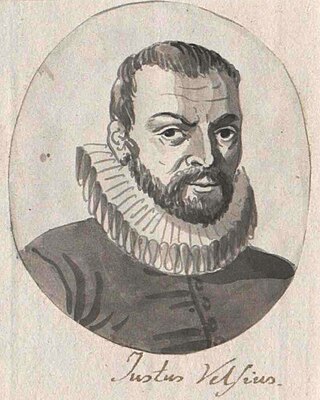
Justus Velsius, Haganus, or Joost Welsens in Dutch, was a Dutch humanist, physician, and mathematician.
Vigilius of Thapsus also known as Vigilius Tapsensis, Vigilius Afer, or Vergil of Tapso, was a 5th-century Bishop of Thapsus in the province Byzacium, in what is now Tunisia, and as well as a theological writer and polemicist.














